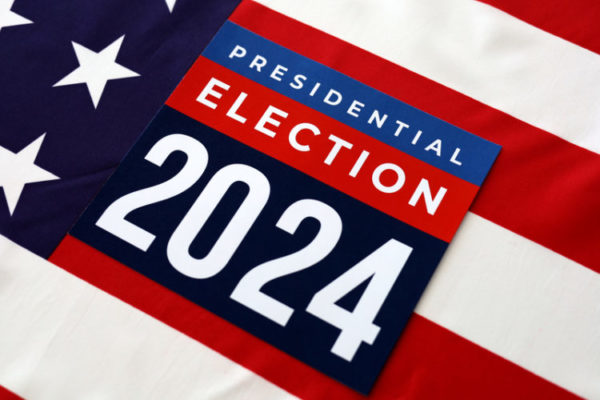
Whoever wins, whether Kamala Harris or Donald Trump, abiding mistrust of Washington is growing among foreign governments, including European allies. That does not augur well for Americans.
For almost all non-Americans, the issue is whether the American electorate is still discerning enough for them to expect benign US foreign and trade policies instead of more coercion and militarism.
The Biden administration’s foreign affairs and trade policy choices have deepened perceptions even among allies that the US presidency, congressional elites and thought leaders have failed against the Trump hubris that derailed the world after 2016.
Weaker countries saw Biden’s people reinforcing Trump’s transactional “Americans first” foreign and trade policies instead of rolling them back. Security policies to “protect the American people first” became so insistent that even close military allies in Europe and the Indo-Pacific are now working urgently to reduce dependence on Washington for leadership, weapons and commerce.
Washington insists that partnerships are the backbone of US security, foreign affairs and trade. But partnerships require trust which is currently hard to find. Almost no foreign state trusts Washington like it did earlier. Even Israel and Ukraine, which depend on US protection for their existence, are distrustful.
People living in less fortunate geographies expect substantial harm to poverty reduction because of alarming political clashes in America, driven by intolerance and hatred among voting blocs, racial, ideological and cultural divides, and eccentric issues like “Who is a true American?” in a nation of immigrants.
The US has about 70 treaty allies and close friends among the world’s 200 countries and territories. They are home to about 2 billion people compared with about 6 billion who are outside. Even those friends are looking for ways to protect their own interests independently of what Washington may require of them or counsel them.
Biden’s Washington may be proud of the unity it has brough to NATO and allies like Japan and South Korea but it has also triggered closer links between Russia and China, Russia and North Korea, and Iran and the three others. Thus, increasing the risk of much wider wars and perhaps a nuclear World War in coming years.
NATO’s unity improved because of fear of Russia and the more urgent European need for US military protection. Washington’s diplomacy should not be given too much credit since it has not dispelled doubts about the will of American voters to fight and die for Europe.
Even Washington’s very close friends in Saudi Arabia, United Arab Emirates and Turkey are moving away quietly to increase links with Iran, Russia and China. Traditionally passive Japan is also rearming to reduce dependence on Washington’s politics.
Even Harris has taken large steps towards Trump’s hardline on immigration and refugee asylum despite likely violation of international human rights, refugee and asylum treaties.
Her approaches are unlikely to be much different from Biden’s towards Israel’s war against Palestinians and others in the Levant region and its shadow war against Iran. Nor does she offer better ideas to reduce Ukraine’s intense suffering under Russian aggression.
Harris may differentiate herself on longer term issues like climate change and respect for the rights of women. But she offers little hope on the immediate life and death issues of Russia’s and Israel’s wars, including violations of legally binding international treaties on the laws of war, safety of civilians, and the sanctity of health facilities and places of worship.
The Biden administration has shepherded the US and European allies towards a wealthy militaristic grouping protected by numerous trade barriers and financial and industrial policy restrictions to safeguard Western prosperity. This is being done with little regard for economic pain caused to the world’s weaker populations. Instead, Washington offers generous humanitarian aid like a band aid on ever-more gaping wounds of poverty-related afflictions.
Such policies are overturning 70 years of concerted actions for freer world trade and global markets that also helped to integrate financial and capital flows across diverse economic systems. They lifted several billion people out of destitution and ignited rays of hope for better lives, prosperity and health for them.
This election is perceived in most developing countries as American voters sawing the branches on which their own prosperity and security depends. Acquiescence to policies turning their country into a military hegemon is not a sustainable path in a world where everyone is militarizing and lethal weapons, cyber warfare capabilities and high industrial technologies can be obtained from almost anywhere.
Trade and security tensions with China have worsened, pushing the world’s second largest economy to rapidly achieve military hegemony in its region while increasing financial coercion on most developing countries, cornering vital minerals and expanding trade volumes exceeding those of the US.
Now, regardless of whether Harris or Trump wins, almost half of American voters may continue to fight the other half through representatives in Washington, making the US less governable and stable. That cannot be good for Americans or their erstwhile admirers around the world.
















